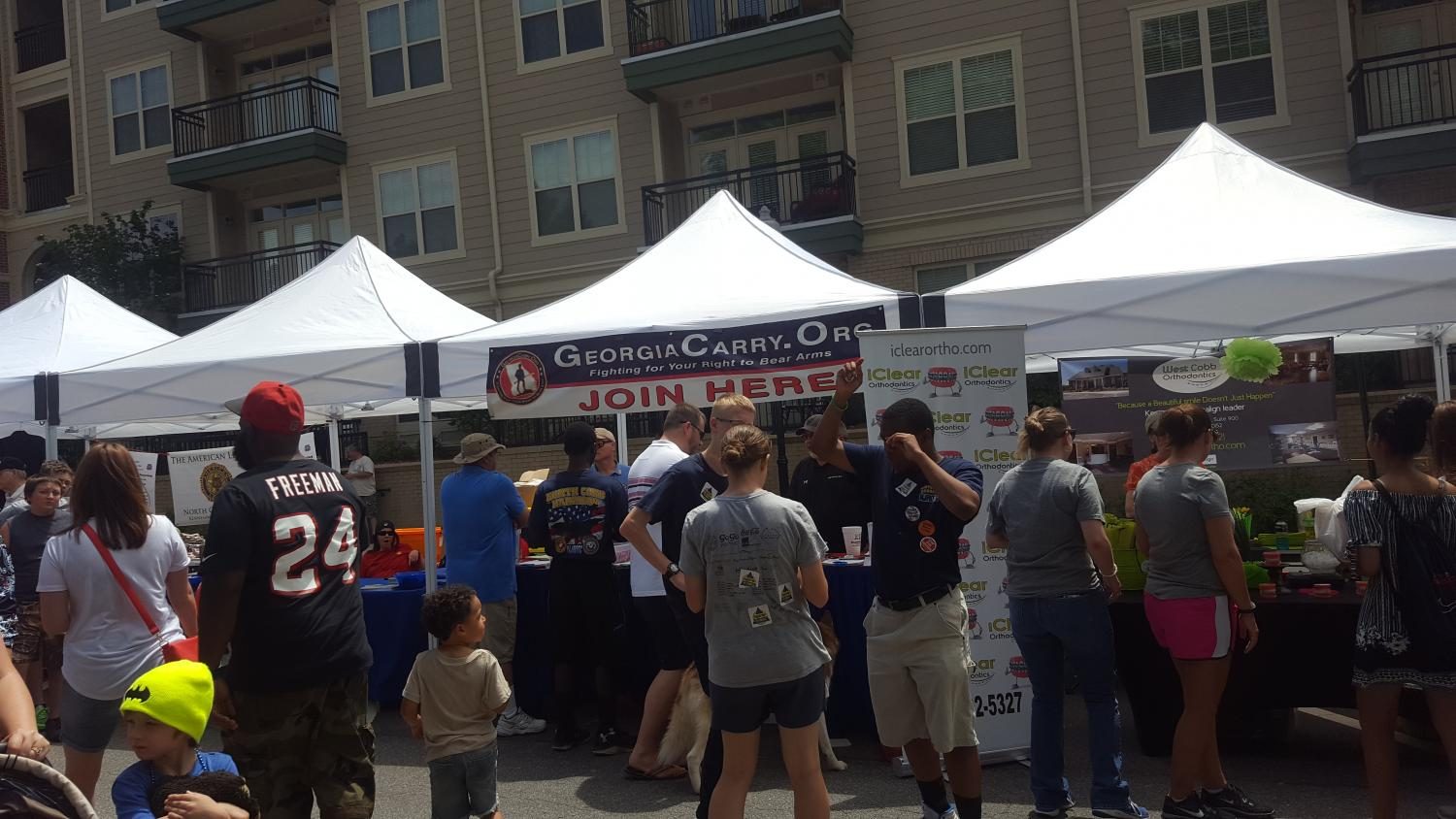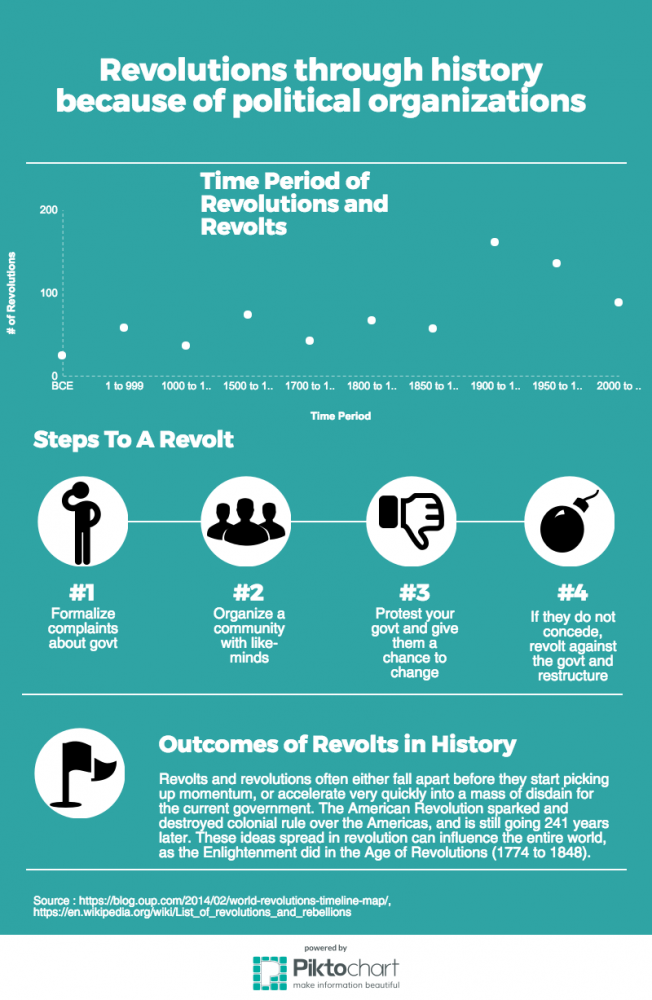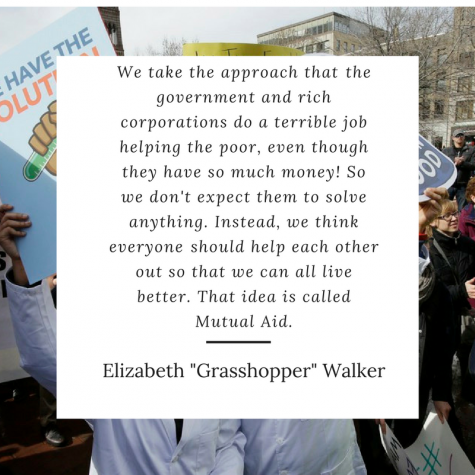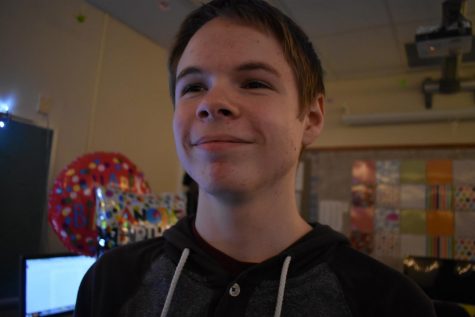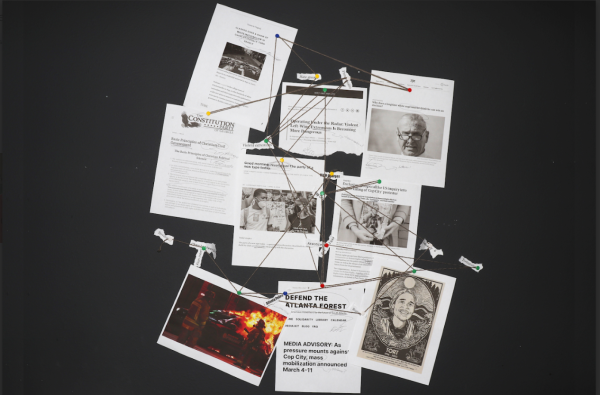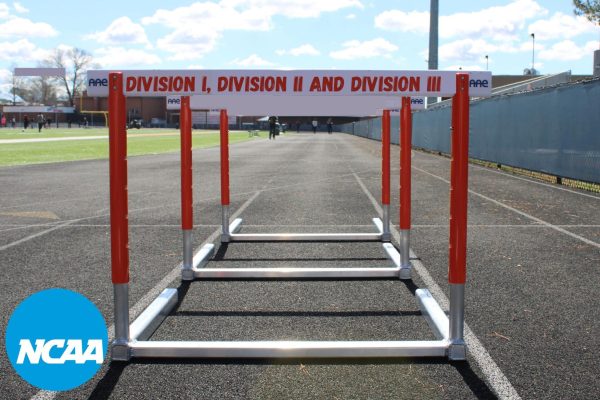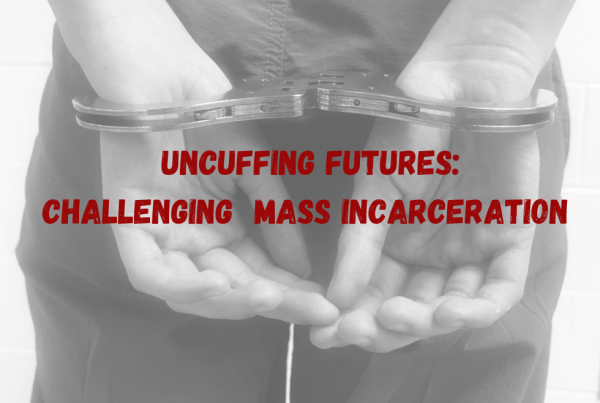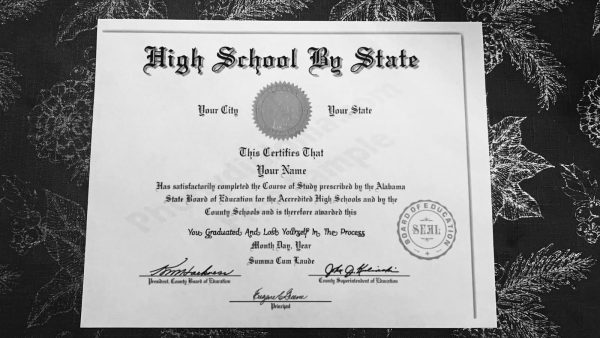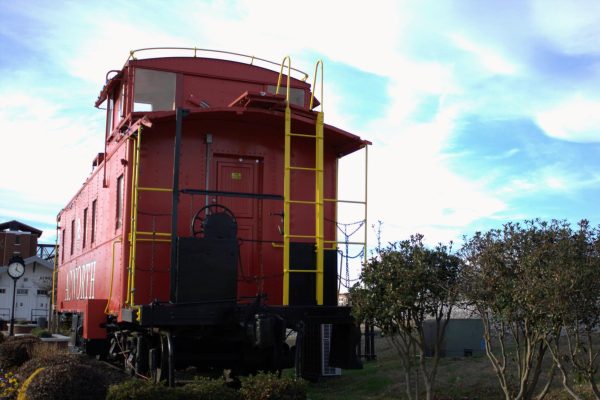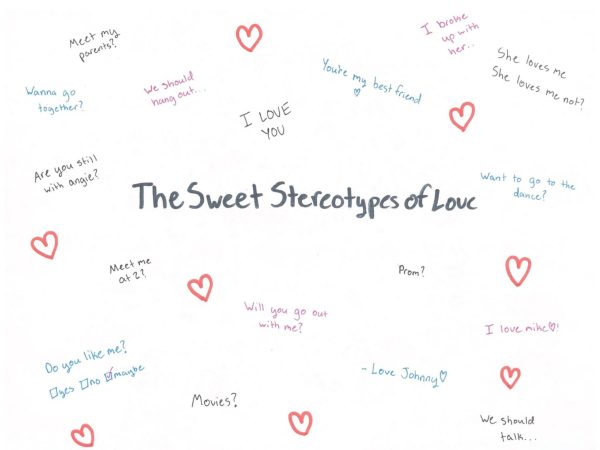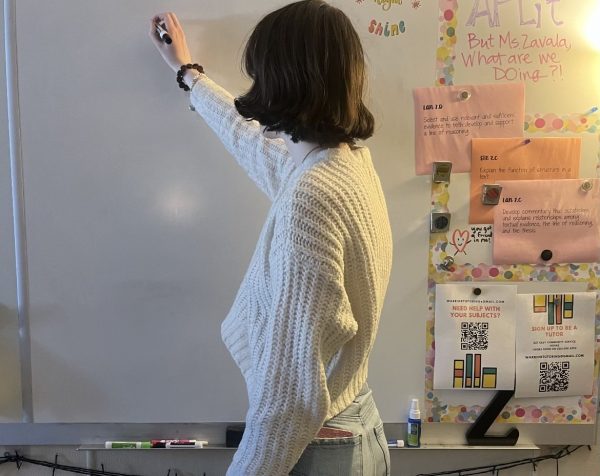How local political organizations shape the world
May 18, 2017
Political organizations around the world can bring down whole governments and often have throughout history.
“In an active liberal democracy, civil society organizations are incredibly important. When governments limit civil society, or the ability to organize these autonomous political groups or nonpolitical groups, what you have is the limit to freedom of expression. In our country that would be a violation of the first amendment.” AP Comparative Government and AP Art History Teacher Carol Galloway said.
Groups such as the Sons of Liberty during the American Revolution helped to bring down British rule, which only started because of like-minded people joining together. This still happens, as political organizations around the world rally to make their voice heard.
Most of the governmental policies comes from activists rallying through political organizations. These organizations stem from passionate people wanting to make the world, in their view, a better place. Through that passion, along with the first amendment, they can change the United States in radical ways.
In today’s world, political organizations continue to inspire change in government and society’s worldview. The Metro Atlanta Democratic Socialists of America fight for economic justice and the ideas of Democratic Socialism within the city of Atlanta.
“After and during the campaign of Bernie Sanders, we saw a huge amount of people join the cause for Democratic Socialism,” Dr. Milt Tambor, chair of the Metro Atlanta Democratic Socialists of America, said. “We have grown three times in a matter of a year. We now have over 20,000 members, because of Sanders. There was a survey done that came out to be that 55 percent of millennials don’t feel that capitalism is the answer to our problems as a people.”
Milt Tambor, a doctor of sociology, moved to Atlanta from Detroit in 2001. Becoming the chair of the Metro Atlanta Democratic Socialists of America in 2006, Tambor fought for workers rights and collective bargaining in the workplace. Recently, he led the organization to fight against Donald Trump’s election campaign, and continues to seek out any place or time he can to educate people on the principles of democratic socialism.
“We really look for any opportunity to speak to people. I’ve recently been to many colleges to speak to younger people, which is always a nice experience,” Tambor said. “One thing we like to talk about is to get the government to respond to the most vulnerable people in the community. Homelessness in Atlanta is a huge problem, and that is one thing we really push against.”
In the local community, the Metro Atlanta Democratic Socialists of America try to help those in poverty. They join many of the local protests and marches, most recently the Women’s March on Atlanta and the Atlanta March for Science.
“In the local community, we really have tried to help anyone who needs it. We’ve helped people who’ve been displaced by eminent domain when the Olympics came through Atlanta, and protested for immigrants, medicare, and economic justice. Actually, recently, we’ve even had some students arrested for civil disobedience at protests,” Tambor said.
The Georgia Carry Organization (GCO) fights for a much more specific purpose: freedom to own guns. The second amendment protects the right to bear arms, and to Georgia Carry, that right needs constant protection from legislators.
“Part of what we do is education about the second amendment and how it affects us as American citizens, and another part is trying to gain new members,” Recruiting Chairman Bruce Greenfield said.
The state of Georgia’s legal code contains some of the fewest restrictions on firearms in the United States, ranked number thirteen by Guns and Ammo.
“We really are responsible for all gun legislation in Georgia in the past 10 years,” Greenfield said. “With the new campus carry bill being signed by [Governor Nathan] Deal, there might be a turning point for the country.”
The Campus Carry bill struggled for many years in lawmaker’s attempts to make the bill into Georgia law, since it saw a veto by Governor Nathan Deal last year because of the many complaints from advocates of gun control. Deal then signed it into law May 4, 2017. The law states that registered gun owners can carry concealed weapons in college campuses, and should prove itself useful in places with high crime rates, such as the area around Georgia Institute of Technology or Georgia State University. Students can not carry weapons inside of dorms or classrooms with dual enrollment.
The GCO fights for second amendment rights in local, state, and federal courts. Over the course of 11 years, beginning in 2006, they removed over 20 restrictions on open and concealed carry laws. Their highlights include allowing concealed carry in most public spaces, legalizing assault rifles, and letting school boards determine if they want to arm teachers or administrators when at school.
The GCO also stresses firearm safety, even dedicating a page to it on their website. Their four basic rules include treat every gun as if it contains a bullet in the chamber, never let the muzzle of a firearm point toward anything other than the target, keep the finger off the trigger until ready to fire, and know what lies beyond the target.
Instead of injustice of the second amendment, The Atlanta chapter of Food Not Bombs fights for a different kind of oppression. They promote free charity for any person in poverty, and holds free vegetarian and vegan meals every saturday, rain or shine at Five Points, Atlanta. They do this to protest war, waste, and economic injustice.
“[Food Not Bombs is] trying to inspire the public to participate in changing society and focus our resources on solving problems like hunger, homelessness, and poverty, while seeking an end to war and the destruction of the environment,” activist Elizabeth “Grasshopper” Walker said.
The Food Not Bombs organization stretches all across the country, with 500 chapters listed on their website, and even chapters in the Middle East and Russia. They garner both love and hate from people, even receiving the label of “terrorist organization” at one point.
“The United States government started to claim we were ‘America’s Most Hardcore Terrorist Groups’ soon after we were first arrested for sharing free vegan meals in Golden Gate Park in the fall of 1988, a year before the end of the Cold War,” the Food Not Bombs website said. “All we had done was claim we had the right to feed the hungry in protest to war and poverty. Military contractors are worried that we might influence the public to realize our taxes could be spent on human needs instead of war, and that this could threaten their billions of dollars in profits from arming the United States government.”
The current operations of Food Not Bombs include joining protests against the legislation and budget plans of the Trump administration, which plans to cut spending on the environment and stop scientific research, along with providing food to the local communities around the United States.
Political organizations shape the world around us, but also impact the local community. Organizations like the Democratic Socialists of America, Georgia Carry, or Food Not Bombs include people that deeply care about the citizens around them in their local area. These people show altruistic traits that not many others take the time to express.
Though citizens of the United States fight over what should pass into law, they also shape the country into a place of wildly different political ideologies. The first amendment allows citizens to debate these ideas openly, and develop their own opinions of morality and political alignment. This duty as a citizen in a democratic state, standing up and fighting for ideas, comes from the foundations of our nation.
“I personally think that it’s important to understand that while political organizations have the potential to bring a positive effect to the communities in which they are located, oftentimes these political organizations are present in communities to gain support more so than to assist the populace,” sophomore Spencer Paige said.
Passion in politics fuels what the space around citizens. The community around people does not take much to change, and citizens can always take action to change what they feel does not belong. Work never stops in the massive job to improve the lives of everyone, and political organizations seek to take on that noble task.




